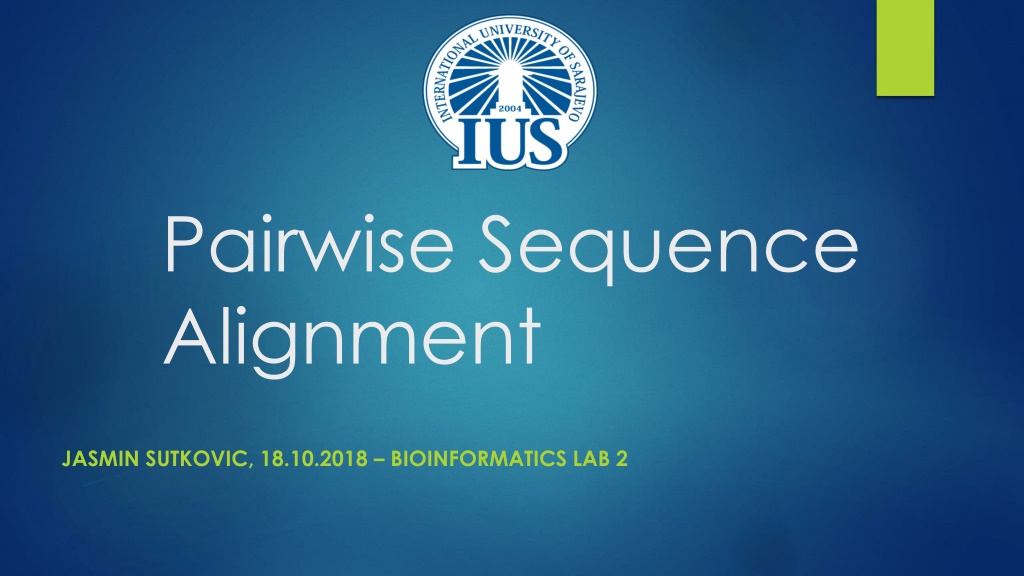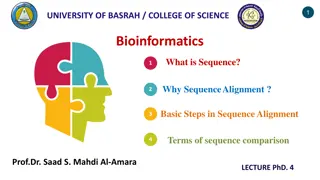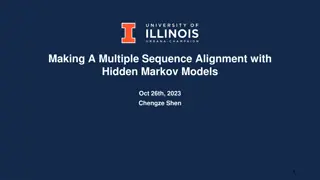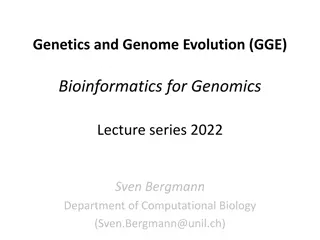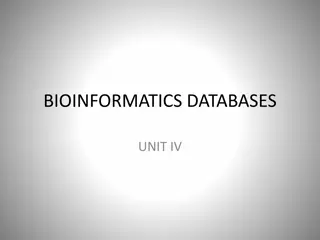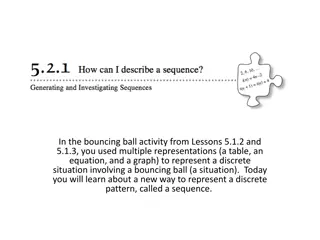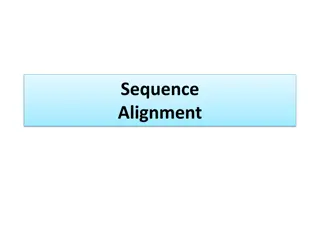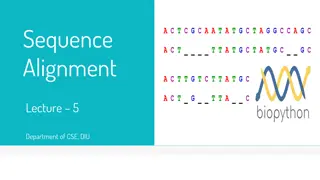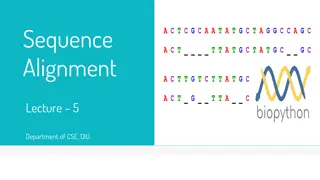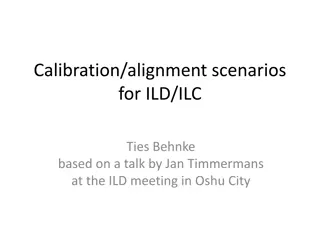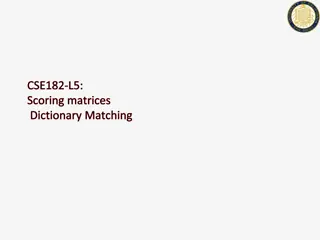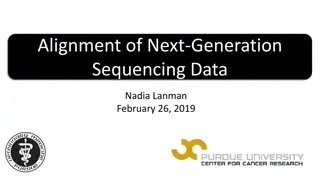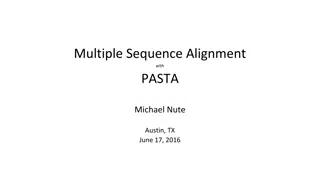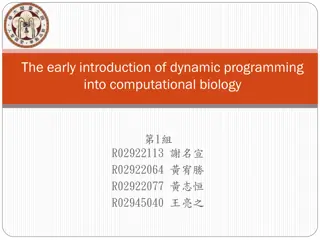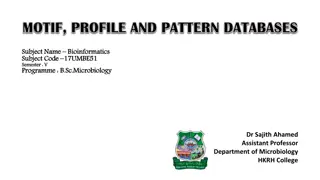Understanding Sequence Alignment and Tools in Bioinformatics
Explore the concepts of homology, orthologs, and paralogs in bioinformatics, along with different types of sequence alignment such as global, local, and semi-global. Learn about popular alignment tools like Blast and Fasta and how they are used for analyzing sequences. Dive into the world of NCBI and discover the importance of pairwise sequence alignment methodologies.
Download Presentation

Please find below an Image/Link to download the presentation.
The content on the website is provided AS IS for your information and personal use only. It may not be sold, licensed, or shared on other websites without obtaining consent from the author. Download presentation by click this link. If you encounter any issues during the download, it is possible that the publisher has removed the file from their server.
E N D
Presentation Transcript
Pairwise Sequence Alignment JASMIN SUTKOVIC, 18.10.2018 BIOINFORMATICS LAB 2
Homology Orthologs Divergence follows speciation A gene from common ancestor is found (has duplicated) in two different species Paralogs Divergence follows duplication A gene has duplicated within the same species Para in Greek - side by side
Alignment Types Global (Needleman & Wunsch) Local (Smith & Waterman) Semi-global (Glocal) It is like a global alignment, but spaces at the beginning and/or end of an alignment are ignored
Alignment Tools Blast vs Fasta BLAST Blast is much faster than Fasta. Basic Local Alignment Search Tool Blast is much more accurate than Fasta. For closely matched sequences Blast is very accurate and for dissimilar sequence Fasta is better software. Alignments contain short lengths of exact matches FASTA Blast can be modified according to the need but Fasta cannot be modified. Fast All Originally FASTP (only for protein) Blast has to use Fasta input format to get the output data. Later on for All (DNA and protein) Blast is much more versatile and widely used than Fasta.
Some other websites relevant to bioinformatics... Swiss Prot http://www.expasy.org/ PDB Protein Data Bank http://www.rcsb.org/
